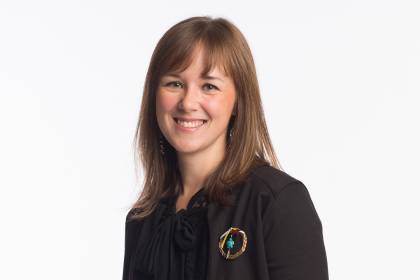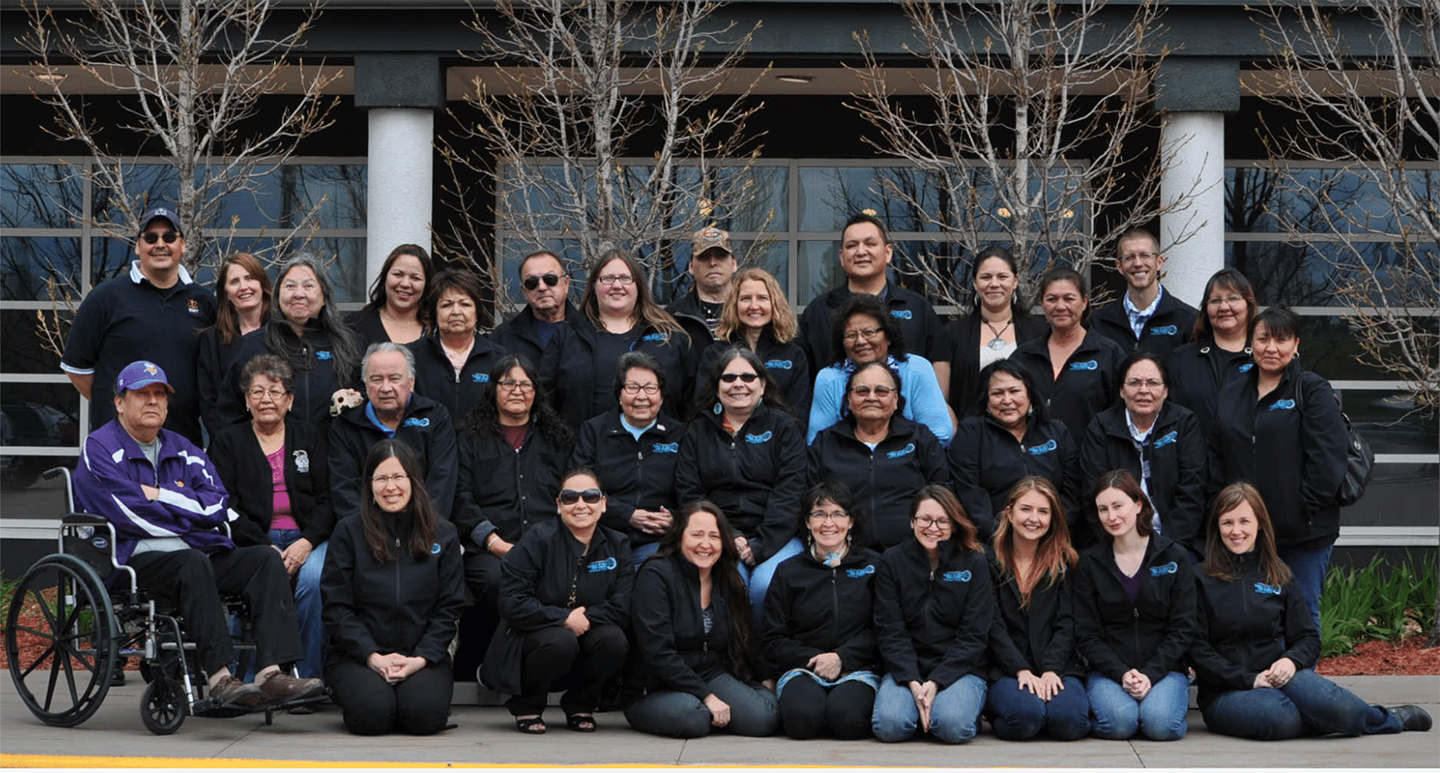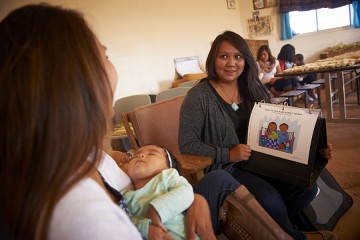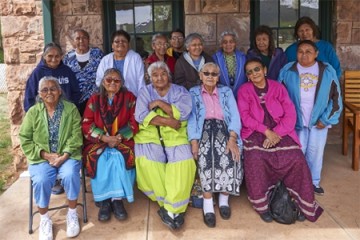Building on community partnerships with tribal members from 11 Ojibwe Bands, the Johns Hopkins Center for American Indian Health will expand its programming to the Midwest. Under the direction of Melissa Walls, the center's new Great Lakes hub will be located in Duluth, Minnesota, and will be home to a study examining a multigenerational approach to preventing diabetes in American Indians.

Image caption: Melissa Walls comes to Johns Hopkins from the University of Minnesota Duluth, where she led research projects studying American Indian health
Image credit: Angie Forsberg
Since 1991, the center, which is based in the university's Bloomberg School of Public Health, has worked with American Indian and Alaska Native communities to improve the health status, self-sufficiency, and health leadership of native people. With the recent expansion into the Great Lakes region, the center now reaches more than 125 tribal communities in 20 states. It offers a range of programs that center on holistic approaches to health such as alcohol and drug abuse prevention, maternal and child health, mental health, and obesity and diabetes prevention.
"We are thrilled to open our first Great Lakes hub in communities where Dr. Walls has built tremendously important partnerships over the past 17 years," said Allison Barlow, director of the Center for American Indian Health. "In collaboration with indigenous families and tribal leaders, Dr. Walls is making ground-up discoveries to reclaim well-being for the indigenous peoples of North America—her approach will generate findings to advance the entire field of prevention science."
In the U.S., American Indian youth experience the highest rate of childhood obesity and the highest and fastest-growing rate of Type 2 diabetes of any racial or ethnic group. Walls, who has been appointed an associate professor in the Department of International Health at the Bloomberg School, will lead an effort to adapt Together on Diabetes, a home-visiting diabetes prevention and management program that teaches American Indian children and their families about nutrition, physical activity, and life skills. In a yearlong study, the program was shown to improve body mass index scores, average blood sugar levels, and hypertension in youth who were either diagnosed with Type 2 diabetes or were at high risk of developing the disease.
The Great Lakes team will recruit adults with diabetes and their adolescent children from five Ojibwe communities and seek to help adults manage their diabetes and prevent the disease in their children.
"It's often hard to change the behavior of individuals," said Walls. "You can have a bigger impact if you get family norms to change."
It also helps to be steeped in the culture of the communities where the interventions are being developed, Walls suggested in an interview with the Star Tribune. Walls, herself a member of the Bois Forte Chippewa and Couchiching First Nation bands, remains deeply connected to the tribal lands in Minnesota and Ontario where her Anishinabe family has lived for six generations. She participates in an indigenous women's running group called Kwepack and in powwows as a jingle dancer.
"You've got to be here," Walls told the Star Tribune. "It's all predicated on building good relationships."

Image caption: The research group behind Walls' Gathering for Health program screened diabetes patients for depression and referred them to mental health care
Image credit: Angie Forsberg
For 12 years she's served on the faculty at the University of Minnesota Duluth investigating the social determinants of health for American Indian populations and how physical health and mental health affect each other. After identifying a link between mental health and diabetes-related health problems, Walls's team worked with tribal clinics to implement a program called Gathering for Health to screen diabetes patients for depression and refer them to mental health care. She'll continue to lead a longitudinal research cohort called Healing Pathways that examines behavioral health issues such as anxiety, suicide, intimate partner violence, and substance use.
Walls received her master's degree from the University of Nebraska-Lincoln in 2004 with a thesis examining how caretakers influence alcohol use in American Indian adolescents. She received her PhD, also from Nebraska, in 2007 with a dissertation focusing on American Indian youth suicide.
"Research as purely an academic exercise won't fly with our communities," Walls said. "Our goal is to influence policies and programs with the findings we generate."
Posted in Health, Politics+Society
Tagged center for indigenous health









